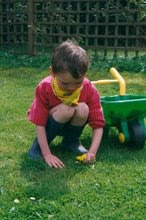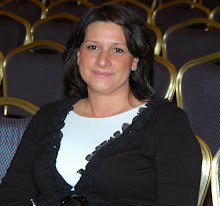 "It is a lonely existence to be a child with a disability which no-one can see or understand, you exasperate your teachers, you disappoint your parents, and worst of all you know that you are not just stupid."
"It is a lonely existence to be a child with a disability which no-one can see or understand, you exasperate your teachers, you disappoint your parents, and worst of all you know that you are not just stupid."-- Susan Hampshire
But let’s go further... if one is a child or an adult with a visible disability one is still precious, unique, and lovable and has much to live for and to contribute to the world.
"Disability is a matter of perception. If you can do just one thing well, you're needed by someone."
-- Martina Navratilova
References:
Special Olympics Virginia: http://www.specialolympicsva.com/
http://www.specialolympicsva.com/View/Page/Success-Stories
About Susan Hampshire:
Susan Hampshire chronicled her own battle with dyslexia in her book titled 'Susan's Story'. She has five honorary degrees at the City University London, St Andrews Scotland, Exeter University, Kingston University Surrey and in Boston USA. She was awarded an OBE in 1995. Susan Hampshire was President of the Dyslexia Institute, Staines.
Susan's Story: tp://www.antiqbook.co.uk/boox/lbw/016753.shtml
Martina Navratilova : http://en.wikipedia.org/wiki/Martina_Navratilova
Note: Photo of Susan Hampshire's from Google Images












2 comments:
Dear Judit,
I read Susan Hampshire's autobiography soon after it was published. Without wishing to detract from the problems and the distress that she undoubtedly experienced, I have to say that my major conclusion from reading this vivid and detailed account testimonio was that these were the systemic outcomes of undiagnosed and unaccounted middle-ear hearing loss.
In other words, both the underlying physical difficulty and its psychosocial effects were eminently remediable if properly understood and dealt with.
The notion of some sort of irremediable central deficit with direct, unmediated consequences at the psychological level was very likely a further deleterious factor in her emerging developmental mix. You can see this very clearly in her own lucid (if uncritical) account.
All that was a long time ago, at a time when I used to agitate against the then only-just-emerging notion of 'dyslexia' . I published several articles in 'the literature' arguing the, to me, very obvious position that the 'hidden disability' in question was a product of learning, a dysontogenesis, a distortion of development. No matter, the world (at least the British world) wanted mysterious, 'neurological' incurabilities. What a dreadful idea for children, parents and teachers to have widely and authoritatively presented them. What a context for pedagogy, upbringing and education!
Now we have 'dyslexia' (and all its chums) coming over the walls from all sides, and Ms Hamphire's efforts over the years have played no little role in contributing to this.
Judit does not explain the moral that we should draw from Ms Hampshire's story.
If people wish to judge this for themselves, it is an interesting exercise to try. Inexpensive second-hand copies are readily available (cheapest paperback spotted: $0.02) through the usual sources.
Reference
Hampshire, S. (1983) Susan's story: an autobiographical account of my struggle with words, London, Sphere Books
Dear A,
Thank you for your angle on this posting. It is most enlightening and definitely food for thought.
J.
Post a Comment